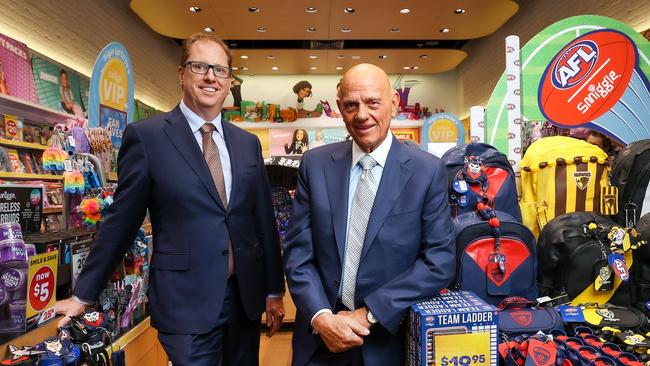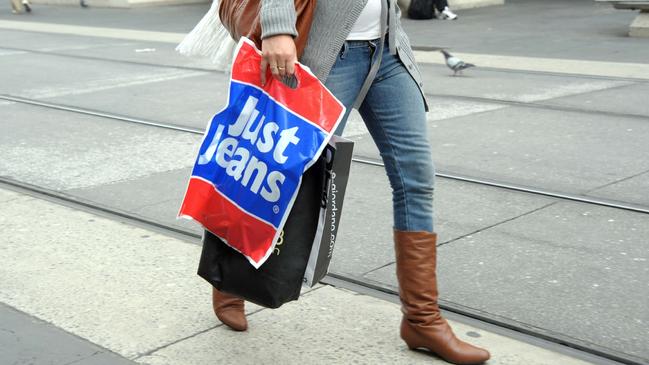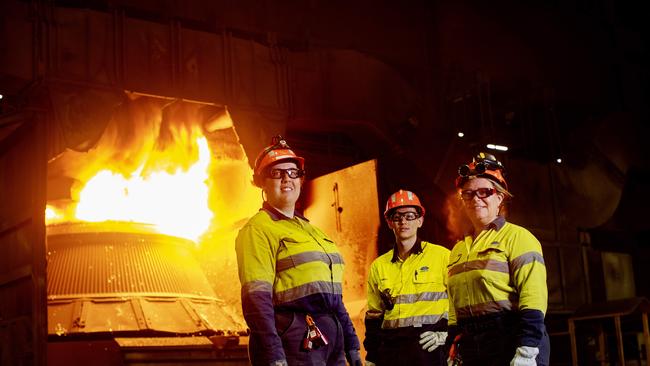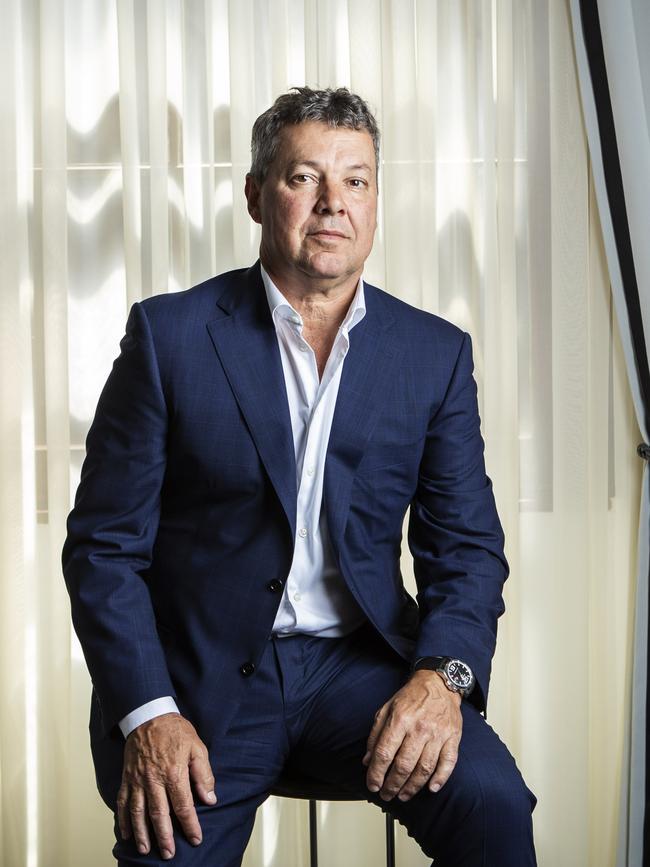Behind Solomon Lew’s four-way split of brands from Smiggle, Peter Alexander to Just Jeans

The billionaire is sending a message of long-term confidence in retailing as he prepares to roll the dice on a break-up of his $3.8bn Premier Investments (ASX: PMV) retail empire.
The unwinding of the retailing-conglomerate paves the way for the creation of three new listed companies, in addition to the existing head company, each with different growth options. If the plan goes ahead in its current form, the four-way simultaneous split would be the first for the modern era of the ASX.

Led by chairman Lew, the board of Premier has tapped UBS and long time legal adviser Arnold Bloch Leibler to run a strategic review to consider a simultaneous demerger of fast-growing pyjama wear brand Peter Alexander; kids-focused stationery play Smiggle; while Apparel Brands that covers Just Jeans, Dotti and Portmans, would make the third retailing company. The bet here is the parts are worth more than the sum, and over time Smiggle and Peter Alexander could be worth billions in their own right.
The move allows Premier to return to its original purpose as a cash box following its listing after the stock market crash in 1987, freeing it up again to mount big ticket acquisitions.
The timing is certainly interesting too. Lew has been a long-time stalker of Myer that happens to also be on the lookout for a new chief executive as it moves into a new phase of revival. And those close to Lew say the 78-year-old retailer has more than one big acquisition left in him.
CEO exit
Under a split, Premier would remain the holding vehicle for a controlling stake in each of Peter Alexander, Smiggle and Apparel Brands as well as the cornerstone stake in Breville and 25.8 per cent holding in Myer. Outside of lease liabilities, Premier has no operating debt on the balance sheet, which means the new entities would emerge debt-free, giving them the best possible start in life.

While the review has only just got underway and the final structure, capital requirements and business plans are a long way from being finalised, the separate decision of Premier chief executive Richard Murray to resign over the weekend shows there is strong momentum behind the retailing break-up.
It is understood that Murray or Premier’s top management team had no idea about how far advanced Lew was into the review until Sunday.
Murray, the former JB Hi-Fi boss, was hand-picked by Lew in late 2021 to run his apparel empire. This shows Lew had only come around to the idea of a split in recent months – particularly as Smiggle’s international growth was taking off earlier this year. Those close to the process said Murray’s exit should not be conflated with the decision around the potential split.
After more than six decades in retail, Lew remains intimately involved in the running of Premier. Just in recent weeks he was visiting Smiggle stores and warehouses through London and also visited operations in Singapore.
Murray knew about Lew’s hands-on management style when he joined but had seen the writing on the wall. The chief executive quickly settled on the decision that Premier wasn’t the right fit as Lew returned to Melbourne this month ready to push the button on the split. Lew earlier on Monday said in a statement he “accepts and understands Richard’s decision to step down”.
With each of the businesses already having their own established management structures in place, it is clear Murray wouldn’t have a job as a chief executive if the demerger moved ahead. If he did it would be over a much smaller investment company: Premier Investments.
Smiggle is led by John Cheston; Judy Coomber runs Peter Alexander; and Teresa Rendo runs Apparel Brands. Lew is likely to continue to exert strong influence over Premier as a holding company and sit on the boards of each of the newly listed businesses. A listing would give each management team different remuneration and long-term share-based bonus structures.
Going for growth
The growth of Smiggle and Peter Alexander is leading the push for the split. Both are at different stages of their growth cycle, which means both have different valuations, which are not being fully reflected in Premier’s current share price.
Peter Alexander is currently the biggest revenue engine, clearing more than $470m a year with a strong digital footprint. Lew has previously said there is significant growth potential for the brand outside Australia and New Zealand, as well as new megastore formats.
Smiggle, meanwhile, posts sales of more than $260m and operates 300 stores in Australia and offshore in New Zealand, Singapore, Malaysia, the UK and Ireland. Lew believes there is strong potential for further expansion inside each market and through Europe. He is eyeing the US but over time.

Apparel Brands meanwhile would be more challenged for growth and remains the most at risk. The mature brands of Just Jeans, Dotti and Portmans are highly-leveraged to Australia’s retail cycle, so instead would be managed for their strong cashflow or could also be used as a vehicle for more domestic apparel acquisitions.
Big shareholders backed the concept, sending Premier’s shares 12 per cent higher on Monday. But even with Lew’s support the review will have to determine if individual parts of the retailing empire are worth more than the whole. That means that as a stand-alone business any benefits from shared facilities such as warehousing across international markets, shared management or even a bigger balance sheet will need to be weighed up against going it alone. Currently, Premier’s businesses use centralised sourcing and supply chain as well as head office support. Lew has long argued this set-up has given his retailing brands an edge.
Blue steel
BlueScope Steel chief Mark Vassella labels the $1.15bn go-ahead for the upgrade and reline of the idle Port Kembla number six furnace as providing a bridge been certainty and moving Australia’s biggest manufacturer to a low carbon economy over the long term.
Planning for the upgrade has been some time in the making but comes amid a big question of when green steel making is likely to become commercial reality.
It’s still too early in the tech cycle for green steel to be ready and BlueScope’s window is fast closing to make a call on extending Port Kembla’s lifespan.

The decision by the BlueScope board led by outgoing chair John Bevan to sign off on the steelmaker’s single biggest capital investment still sends a message about its confidence for long-term demand for Australian steel in domestic construction as well as additional demand for steel from renewable energy transition and defence spending.
There is also increased certainty around expected “carbon tariff” protections from imports that sidestep emission reduction rules under the Albanese government’s safeguard mechanism.
Assistant Treasurer Stephen Jones is the local member south of Port Kembla, which employs more than 3000 directly and supports another 10,000 local jobs. Both he and Labor’s Alison Byrnes in adjacent Wollongong have been in the middle of negotiations between Canberra and BlueScope on settings for the safeguard mechanism.
A typical blast furnace reline will have about a 20-year life span and this project is scheduled to fire up from 2026 when production moves across from blast furnace number five.
Even with a 15-year lifespan, the timing of the reline means BlueScope is unlikely to be at the cutting edge of green steel production from its main plant.
Vassella says as part of the reline there will be several broader upgrades to ensure it operates as efficiently as possible in terms of cost, reliability and environmental performance. Indeed with measures like waste gas recovery and better emissions performance, the new number six furnace will be in the top 15 per cent efficient blast furnaces around the world.
BlueScope had a team in the last six months travelling through Europe and North America looking at where technology is heading on green steel. It was feedback from this tour that also promoted BlueScope to go down the path of its full reline.

Vassella believes green steel is coming, but at best the commercial process is at least a decade away. It’s not just steelmaking technology – which is a significant hurdle to overcome – but availability of green energy is also a big part of the puzzle. Then it also comes down to access to raw materials. Then overlay that with the public policy settings and the case for green steel remains years away. Vassella says these big technology shifts “tend to happen on an exponential basis when there’s an imperative”.
“It’s certainly in the (20)30s but I would think the late 30s for that sort of change.”
The reline comes as BlueScope posted a net profit of $1.01bn for the financial year just past. The was down by $1.7bn on the record result in financial 2022 following a drop in key benchmark steel prices while input costs remained high. BlueScope has no debt and is carrying net cash of $703m.
The steelmaker had initially budgeted $1bn for the reline, with $150m coming on top for inflation, equipment and construction delays.
The move comes as BlueScope recently approved a $415m new metal cutting line at its existing facility in Sydney’s west. This takes total new capex spending to more than $1.5bn.






Long-time market watchers know when Solomon Lew decides to pivot, take notice. And this is a big one.